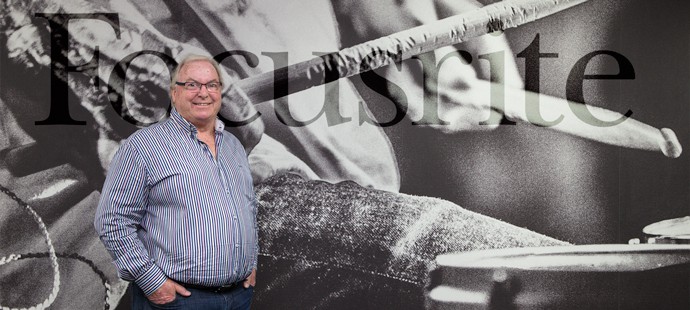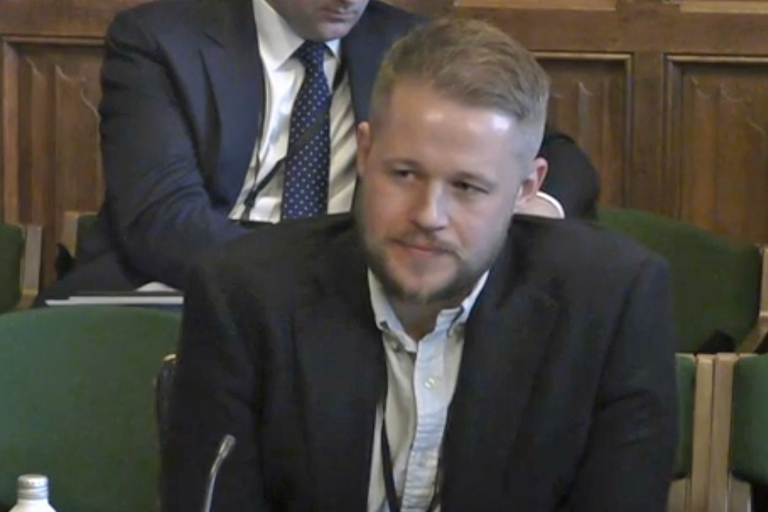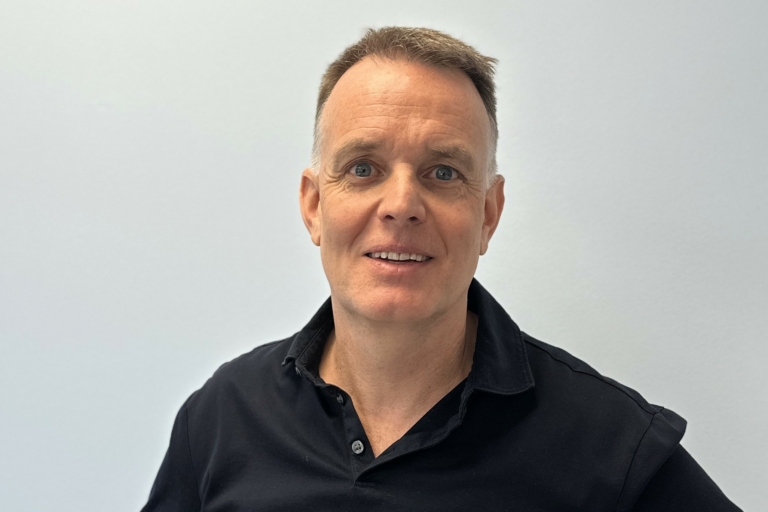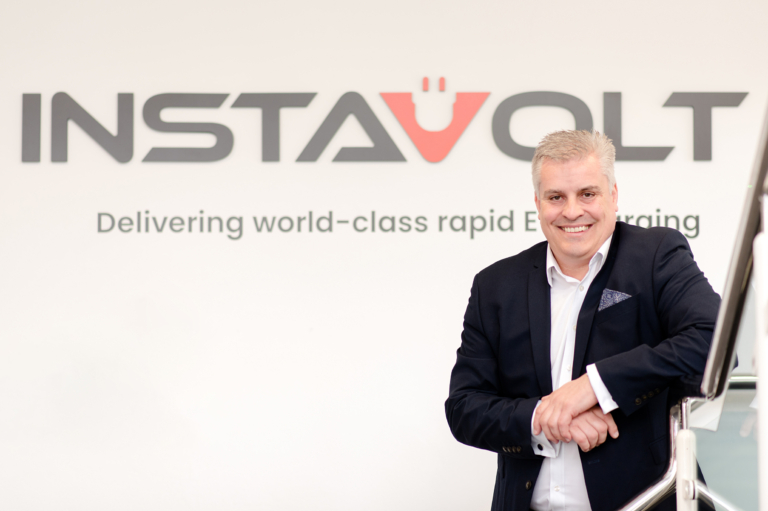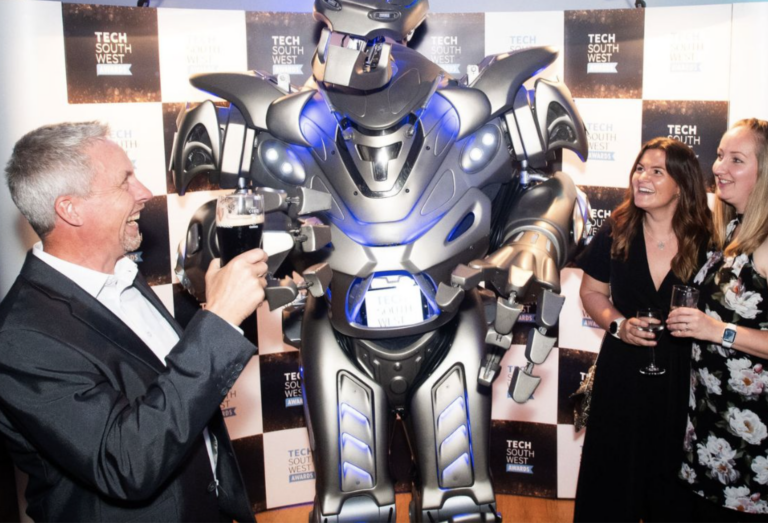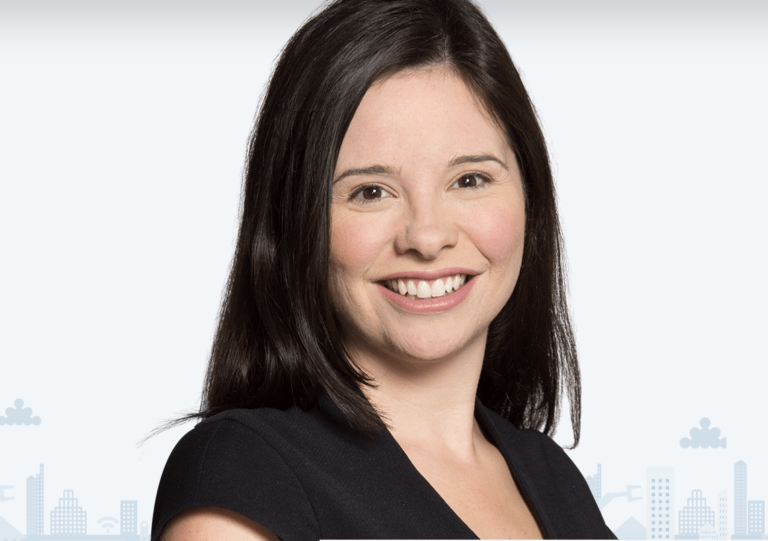Phil Dudderidge - Focusrite
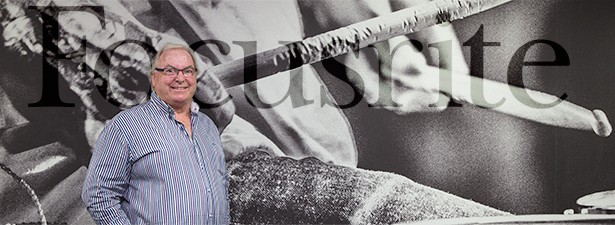
As a public schoolboy with a mother who was a pioneering doctor and a father who was an Olympic canoeist, Phil Dudderidge might not seem the obvious candidate for a life in the full glare of the rock and roll spotlight. Now 66, his early career in the music industry saw him touring with Led Zeppelin, but today he is better known as the entrepreneur behind High Wycombe-based Focusrite. Since buying the business from the liquidator in 1989, he has built it into a global music and audio products group, supplying hardware and software products to generations of professional and amateur musicians, enabling them to produce high-quality music. When Focusrite was launched on the AIM market last December, it was valued at £80 million. Dudderidge is now executive chairman.
Phil Dudderidge grew up in Radlett, Hertfordshire, and, from the age of 11, attended the Haberdashers' Aske's Boys' School where his father was a housemaster. As the youngest of four siblings, he describes himself as “never very academic” and left school at 16. It was the mid-60s and he soon gravitated towards London and the underground music scene. Having his own van secured him a delivery job for a music newspaper and an introduction to the wider music industry, but it wasn’t long before he decided a life on the road wasn’t for him. Instead, he launched his first business, Soundcraft, building sound mixing consoles for bands and studios, a venture which made him a millionaire before the age of 40. With a healthy bank balance and nothing exciting on the horizon, he was then tempted back into the industry with the purchase of Focusrite, later adding the Novation brand and building the Focusrite group into a multi-million pound success story.
Where did your interest in music begin?
My eldest brother was terrifically bright and a natural linguist, but he was also a musician and trumpet player and I used to help out at gigs. That was my first glimpse into the world of music. When I was 16, I didn’t realise that would become my career, but it certainly gave me a taste of what it was like.
What was your first job?
When I left school I joined an industrial microfilm company, ending up as an assistant to the production manager, with more or less the run of the place. About 20 years later, I realised that experience had given me an excellent grounding in how a business runs – my business education. When I was 18 though, I dropped out and went to London, looking for the source of the hippie revolution. I found it at International Times (IT), the underground newspaper, which I delivered all over town.
How did you end up working with Led Zeppelin?
Through IT, I met influential music entrepreneur Joe Boyd, who was manager and producer of Fairport Convention. I started working with them and subsequently various bands as a roadie and at 21 got my first job that didn’t involve driving, when I became Led Zeppelin’s tour sound man. It was a seminal point in my early career. Touring the US with them was a real pinnacle, but it was also very gruelling; we were driving huge mileages between gigs with little sleep and there were some real life-threatening moments. It was more a matter of endurance and I decided that wasn’t what I wanted to do for a career.
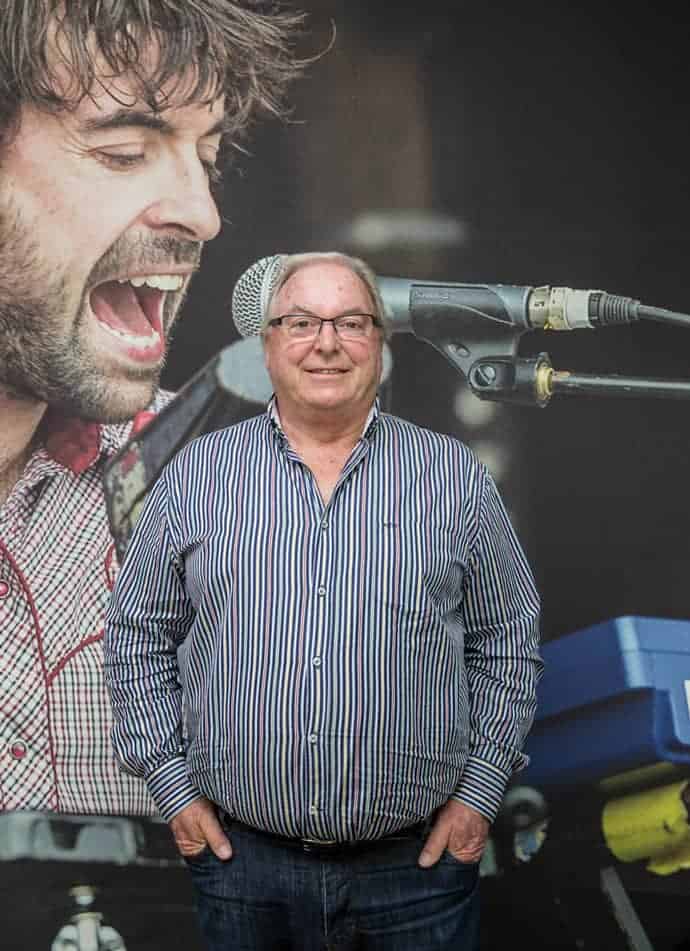
What was your next move?
I realised that in the UK we didn’t have anything like the American sound systems for arena concerts and, having worked with the equipment, I knew I wanted to be on that side of the industry. I talked to a guy I knew and a year later started my first company with him. He was the speaker designer and I was in charge of promotion and sales. There were enough British bands going to the US and seeing what was happening there, so there was a growing demand for better PA systems than what they were used to.
After about 18 months, the original partnership split up, and I set up a new business called Soundcraft with another colleague who had joined us. Over 15 years in the 1970s and 80s we built up a sizeable business and employed around 300 people. In 1989 we sold it to the famous Harman group of brands in the US and I found myself aged 39 with a couple of million pounds in the bank and nothing to do – a dangerous combination.
Where did Focusrite enter the picture?
I was aware of Focusrite, which had been started by Rupert Neve, who was a legend in the professional audio industry. The business was focused on premium recording equipment for use in big studios but the development costs had been very high. I knew it was about to go into administration, but decided the problems were just too great for me to save it. A couple of months later, the liquidator called me and asked if I was still interested. Initially I said no, but he rekindled my interest and by that time I was getting itchy feet. Here was an opportunity to get back into the industry and my ego got the better of me. With a former employee as a colleague, I bought the assets and started a new company under the same name, Focusrite, closer to home in Bourne End. This time though it was different. At Soundcraft we’d had the burden of manufacturing and all the overheads which came with it; this time we kept it simple and outsourced the manufacturing; these days to China.
We looked at the recording studio console that had been developed and decided it was over-designed and technically not feasible to produce reliably or profitably, so we started from scratch using elements of the original design and retaining the same quality, but making it somewhat simpler. It was a short-lived success for a couple of years but we had to reinvent the business.
How did the digital revolution affect the business?
Technology was changing, the introduction of the CD meant record companies were focusing on releasing back catalogues on CD rather than investing in new artists and, of course, the global recession hit in the early '90s, killing demand for our expensive consoles.
In 1992 we had to reinvent Focusrite for the smaller home studios which were emerging and a real turning point was in 1995 when I met Dave Froker, who today is our CEO. For 10 years we had a very successful relationship with his company, Digidesign, in the US, for which we developed software and hardware for its computer-based recording systems. Concurrently, we developed our own products and gradually grew the business into an international operation with a turnover approaching £10m by 2008.
In 2004 we acquired synthesiser brand Novation. Novation products are primarily used to make electronic dance music, a fast-growing music genre. The Launchpad has become an absolute phenomenon with hundreds of thousands sold, and over three million people have now downloaded the app version onto iPhones and iPads, enabling people who are not musicians in the true sense to become novice electronic musicians, leading some to buy the hardware if they get serious.
By the time the financial crisis arrived in 2008, we were very confident we could weather the storm and we’ve been growing rapidly ever since, going from a £10m revenue business in 2010 up to one which analysts are forecasting will generate around £48m this financial year.
Where do you go from here?
About three years ago I started thinking about succession planning and by coincidence Dave Froker got back in touch and did some consultancy for us. It worked well and I could see he was an ideal candidate to be my successor so, after six months, he upped sticks from California and came to live here, which has proved very successful for both of us. I still don’t know when I’ll retire but I knew that when the time came I didn’t want to cause the business any upheaval with a sale. Listing on AIM has given us much greater certainty for employees, the family and employee shareholders; as well as greater public exposure, plus a good platform to take the company forward for the next 25 years. It’s a story which is still unfolding – we have a five-year plan for organic growth and want to continue to build the business.
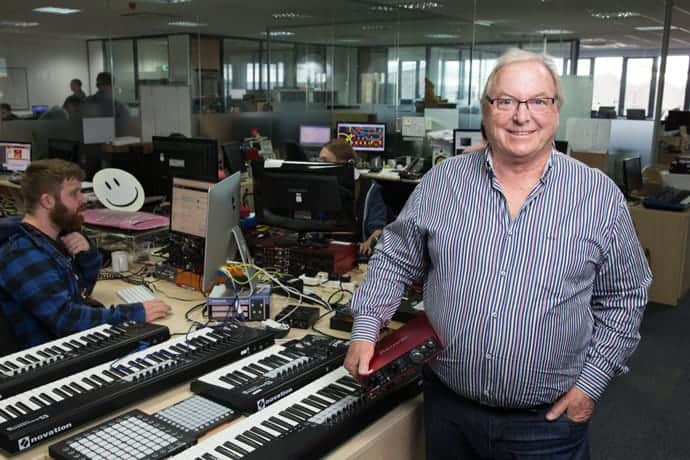
What has been your greatest achievement?
Overall, it has to be the success of the business itself and that’s been a real team effort. Taking the company public on AIM was something of a secret ambition that was in the back of my mind, and it feels like a notable accomplishment.
What’s been a secret of your success?
The speed of change in technology is both a blessing and a curse. It’s a curse if you have a successful business but you can’t adapt. Focusrite didn’t have a successful business in the early days but we knew how to adapt, we abandoned the original business model which was past its sell-by date and we used the brand’s credibility and new technology to become more appropriate to the changing market. We succeeded through adapting and that was key.
Tell us about your family life
I married in 1973, the same year I started Soundcraft, and my wife Jenny and I have five sons and a daughter. We are very fortunate to have a fantastic relationship with all our children. We’re a very close-knit family and now have 11 grand-children to keep us entertained.
Have any of them followed you into the music industry?
My youngest son Joe is a musician and his band The Travelling Band played Towersey Festival near Thame this year, amongst others. They’re excellent and have a good following. We go and watch, and from time to time I give them some tips on their recordings, much to his annoyance. My daughter Joanna studied photography and is working as a freelance photographer, specialising in music and the arts. Our eldest son is a consultant surgeon whilst the other three are in business, one in business telecoms, the other two in consumer electronics and accessories.
Do you ever have any time off?
I’m the very proud owner of a former London Routemaster Green Line double-decker bus, which was retired in the 1980s – I call myself its current preservationist. It’s great for taking out the kids and the grandkids and driving around the countryside and just having fun.
Details: www.uk.focusrite.com




